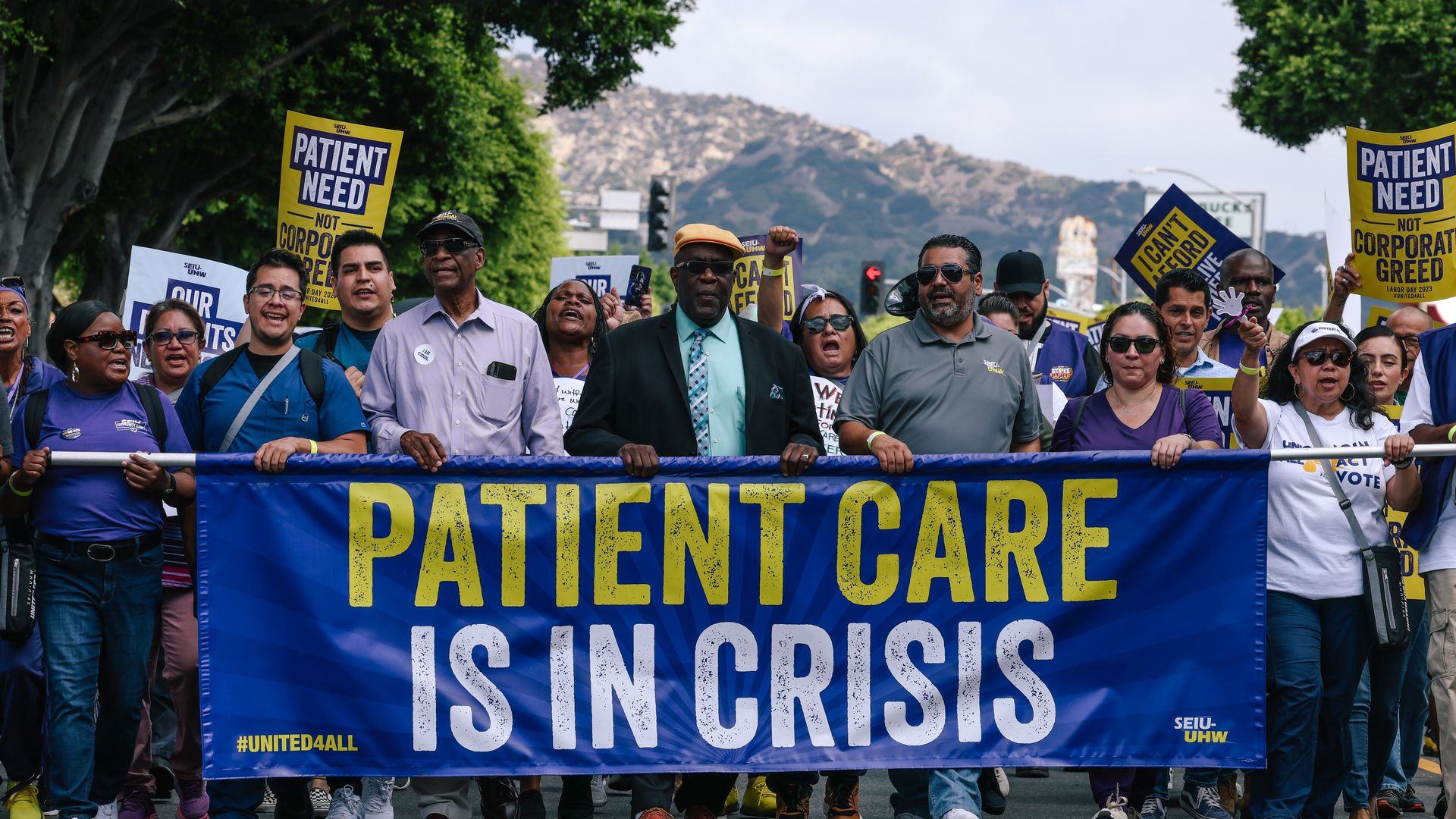The largest health care strike in U.S. history could begin this week
Add Axios as your preferred source to
see more of our stories on Google.

Kaiser workers at a rally in Los Angeles in September. Photo: Dania Maxwell/Los Angeles Times via Getty Images
Just as the Hollywood writers get back to work after 148 days on strike, another big work stoppage is on deck at hundreds of Kaiser Permanente hospitals and medical office buildings around the country.
Why it matters: If Kaiser and a coalition of unions representing its workers don't reach a deal, a four-day strike of about 75,000 employees could begin as soon as Wednesday morning.
- It would be the largest health care strike in U.S. history, according to the unions.
- Striking workers would include nurses, radiology and X-ray technicians, ultrasound sonographers, and hundreds of other types of positions. Their contract expired Sept. 30.
- Strike locations: California, Oregon, Washington, Colorado, Virginia and Washington, D.C.
State of play: Talks are ongoing, a Kaiser spokesperson told Axios. The parties "agreed this morning to continue to meet through midday Tuesday if needed, to reach an agreement," Kaiser said in a statement Monday.
- "A strike is not inevitable, and it is certainly not justified. "
- The union seemed less optimistic, saying in a statement Monday afternoon that it "will go on strike."
The big picture: Since the pandemic, the health care industry has struggled with labor shortages and worker burnout — and unrest has grown.
- Last year, about 15,000 nurses went on strike for three days in what was believed to be the largest nursing strike in U.S. history.
Zoom in: A top concern for Kaiser union members is staffing shortages.
- It's "distressful and frustrating" that "we don't have the staffing that's required to give people the quality of care that they deserve and that they need," Michael Ramey, an ultrasound technician and president of the OPEIU Local 30, told Axios' San Diego reporter Kate Murphy.
- In its statement, Kaiser acknowledged industry wide shortages and said it's aggressively recruiting to fill more positions. The company's already reached a deal with the union coalition to hire 10,000 new employees by the end of October and said it expects to reach that mark.
- If a strike does happen, the company said it has contingency plans in place and that hospitals and emergency departments will remain open.
Editor's note: This story has been updated with additional comments from a Kaiser statement.
